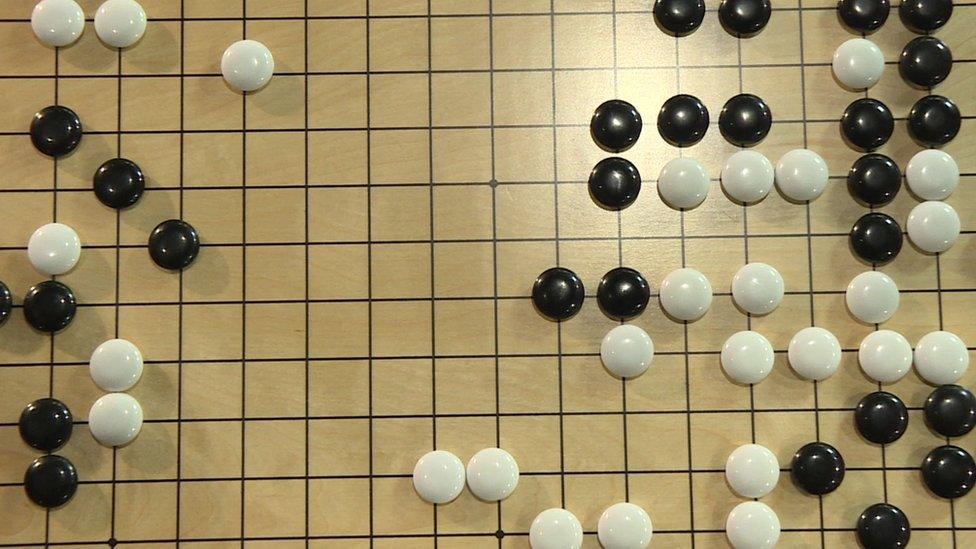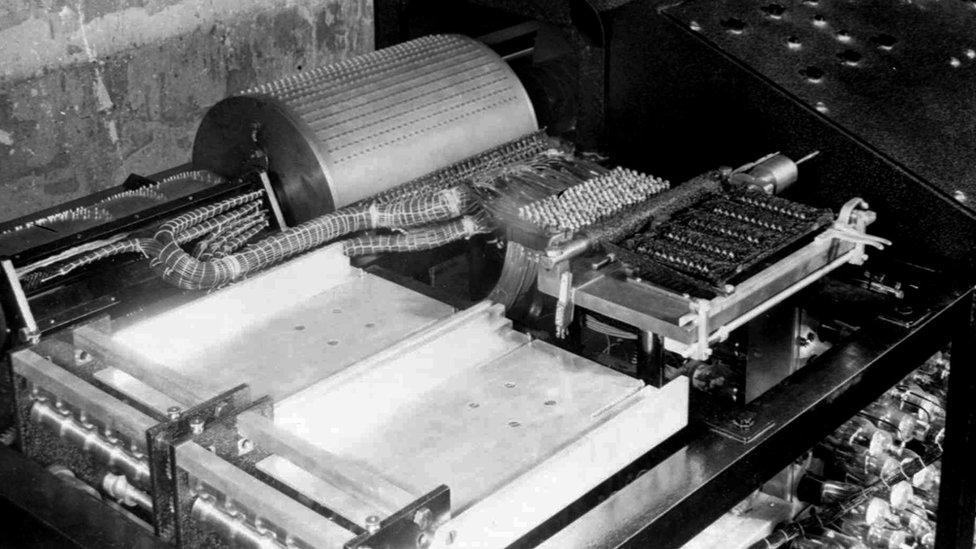The Vocabularist: What's the root of the word computer?
- Published

The defeat by a computer of a human champion at the game of Go has caused much excitement. But computers used to be human themselves, writes Trevor Timpson.
"Computer" comes from the Latin "putare" which means both to think and to prune. Virgil's Georgics - depictions of country life - speak of tidying vines by pruning (fingitque putando).
The playwright Terence left one of the most famous Latin quotations - I am a man and I think nothing human foreign to me (humani… nihil alienum puto).
The link in sense seems to be tidying, setting to rights, balancing an account, reckoning up. The historian Tacitus wrote "if the number of soldiers is counted" (si numerus militum putatur).
Computare (com- means "together") also meant calculate - Pliny's Natural History tells how the breadth of Asia should be "rightly calculated" (sane computetur).
And English has used "compute" for centuries. In 1660 Samuel Pepys wrote of a morning "computing the 30 ships' pay… and it comes to £6,538. I wish we had the money."
A "computer" used to be a person who did calculations. In 1731 the Edinburgh Weekly Journal advised young married women to know their husbands' income "and be so good a Computer as to keep within it."
It was very common for companies and government departments to advertise jobs as "computers" - right up to the time when the word was used for early electronic devices, and in some cases until the 1970s.
One early electronic device was the Atanasoff Berry Computer constructed at Iowa State University between 1939 and 1942. In his paper, external proposing the machine, John Atanasoff actually used "computer" in both senses.

The Atanasoff Berry computer. Inventor John Atanasoff used "computer" in both senses in the same paper
He noted that "an expert computer" takes eight hours to complete one set of equations. But he also discussed the different mechanical parts of "computers" using the decimal and binary systems.
Of course, the word had always been available to apply to calculating devices.
In 1922 the New York Times described the "target computer" and "battery computer" designed to find the range for firing on enemy ships "and figure out factors quicker than [the] brain can work".
Some internet searches intriguingly point to a use of "computer mecanique" in the Pall Mall Gazette in 1869.
In fact unfamiliar type and automatic spell-checking are to blame. The article turns out to be about an early Paris taximeter, the "compteur mecanique".
But hang on. "Compter" in French, and our word "count" also come from computare. Essentially "compteur" really has the exact same ancestry and meaning as computer.
Etymologists call pairs like this "doublets". And anagrams, of course.

The Vocabularist
Select topic "language" to follow the Vocabularist on the BBC News app

Subscribe to the BBC News Magazine's email newsletter, external to get articles sent to your inbox.